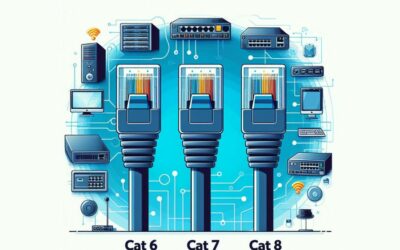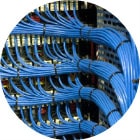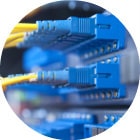In an era where connectivity is the lifeline of modern businesses, having a robust WiFi network is non-negotiable. Whether you’re running a bustling office, a cozy cafe, or a sprawling warehouse, the WiFi you choose can make or break your daily operations. But not all WiFi is created equal.
There are significant differences between consumer and business grade WiFi. So, let’s dive in and explore these disparities to help you make an informed decision for your networking needs.
Performance and Reliability
Consumer WiFi routers are typically designed for homes or small offices with a limited number of devices and relatively low data traffic. They often prioritize ease of setup and affordability over performance and reliability.
On the other hand, business-grade WiFi solutions are engineered to handle the demanding requirements of modern workplaces. They offer faster speeds, greater bandwidth capacity, and advanced features like Quality of Service (QoS) to prioritize critical applications.
Scalability
As your business grows, so do your networking needs. Consumer WiFi routers may struggle to keep up with the increasing number of devices and users, leading to network congestion and performance issues.
Business-grade WiFi systems, on the contrary, are designed with scalability in mind. They offer seamless expansion options, allowing you to add more access points and extend coverage without sacrificing performance.
Security
Security is paramount in today’s digital landscape, especially for businesses handling sensitive data. Consumer WiFi routers often come with basic security features like WPA2 encryption and password protection, which may not be sufficient to defend against sophisticated cyber threats.
Business-grade WiFi solutions, however, offer enterprise-level security features such as WPA3 encryption, VLAN segmentation, and Intrusion Detection Systems (IDS), providing a higher level of protection against unauthorized access and data breaches.
Management and Control
Managing a WiFi network can be a daunting task, especially for businesses with multiple locations or complex infrastructures. Consumer WiFi routers usually offer limited management capabilities, making it challenging to monitor and troubleshoot network issues effectively.
Business-grade WiFi systems, on the other hand, provide centralized management platforms that allow administrators to oversee and control the entire network from a single interface. This centralized approach streamlines operations, enhances visibility, and simplifies troubleshooting.
Support and Warranty
When things go awry with your WiFi network, having reliable support can make all the difference. Consumer WiFi routers typically come with limited warranties and basic technical support, leaving you stranded when you encounter problems.
In contrast, business-grade WiFi vendors offer robust support services, including dedicated technical support teams, extended warranties, and Service Level Agreements (SLAs) to ensure prompt resolution of issues and minimize downtime.
Conclusion
In summary, the differences between consumer and business WiFi boil down to performance, scalability, security, management, and support. While consumer-grade WiFi may suffice for small-scale deployments or personal use, businesses with more demanding requirements should invest in a robust business-grade WiFi solution. By doing so, you can ensure reliable connectivity, enhance security, and streamline management, ultimately empowering your business to thrive in today’s connected world.
If you’re considering upgrading your WiFi network or need expert advice on networking solutions tailored to your business needs, don’t hesitate to reach out to us. Our team of experienced network cabling contractors is here to help you navigate the complexities of modern networking and ensure your business stays connected and productive. Call us: (614) 279-9969









